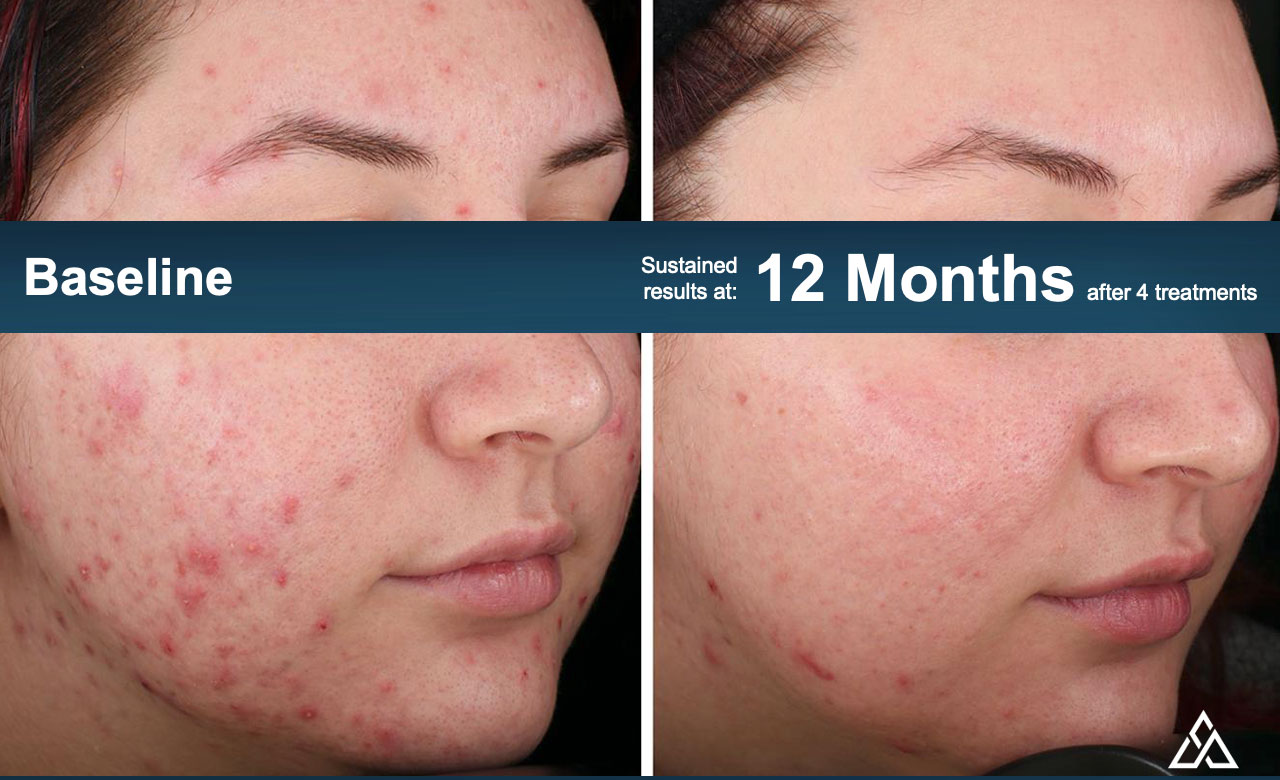
Acne is one of the most common skin conditions, affecting millions of people worldwide regardless of age or gender. Characterized by pimples, blackheads, whiteheads, and sometimes cysts, acne can significantly impact self-esteem and quality of life.
If you’re struggling with acne, understanding its causes, recognizing the symptoms, and exploring effective and personalized treatment options are crucial first steps. In this comprehensive guide, we’ll delve into everything you need to know about acne.
Acne is a chronic skin condition that occurs when hair follicles become clogged with oil and dead skin cells. It most commonly appears on the face, forehead, chest, upper back, and shoulders. While often associated with adolescence, acne can affect people of all ages, including adults. Learn more about what adults can do about acne breakouts.
According to TDS provider Joyce Kong, DO, “Acne is more than skin deep—it affects nearly 50 million Americans each year and can linger well into adulthood, impacting confidence and quality of life. Patients often face not just physical symptoms, but emotional challenges, including anxiety and diminished self-esteem.” Click here to book an appointment with Dr. Kong.
At The Dermatology Specialists in NYC, our board-certified dermatologists specialize in diagnosing and treating all forms of acne, tailoring treatments to each individual’s needs.
Understanding the underlying causes of acne is essential for effective treatment. Key factors contributing to acne include:
[Source: American Academy of Dermatology]
For more factors that might contribute to your acne, read our article on 5 Surprising Causes of Acne.
Acne symptoms vary in severity and can manifest in several ways:
[Source: Mayo Clinic]
Understanding the different kinds of acne is crucial for effective treatment. Explore our detailed guide on 6 Different Kinds of Acne and How You Can Prevent Them.
At The Dermatology Specialists, we offer a comprehensive range of acne treatments designed to address the root causes and provide lasting results.
According to TDS provider Dr. Jules Lipoff, “I am the biggest fan of topical retinoids, especially tretinoin, which has the most evidence to support its use. Topical retinoids treat acne, improve hyperpigmentation, may help treat wrinkles, and may prevent photoaging, all in one ingredient. As long as used appropriately (mixing with non-comedogenic moisturizers and being cautious with skin irritation), what’s not to like?”
Click here to book an appointment with Dr. Lipoff.
According to TDS Chief Medical Officer Dr. Beau DiCicco, “Hormones are a primary driver of acne production. Whether you are the classic picture of “hormonal acne” (tender bumps around the lower cheeks, chin, jaw/mouth that seem to worsen before your period) or a more sporadic bump producer – your hormones, testosterone specifically, tell your sebaceous glands to pump out oil, that oil gets backed up which can lead to stubborn acne. “
Click here to book an appointment with Dr. DiCicco.
Important Note: It’s essential to consult with a dermatologist before starting any medication. Read here about tips and tricks for treating acne effectively.


Our state-of-the-art clinics offer advanced laser treatments like the Accure 1726 nanometer laser, specifically designed to target acne at its source.
“We are thrilled that laser technology has advanced to the point where it can rival pharmaceuticals. For patients who want the results of isotretinoin, without the potential adverse risks associated with this drug, the Accure laser is a welcome addition to our therapeutic tool belt,” says TDS CEO and Co-Founder Dr. Bobby Buka.
Learn more about our laser therapies for acne.
Implementing certain lifestyle changes can significantly improve acne management:
Misinformation can hinder effective acne treatment. Don’t believe everything you see on social media (Note: we take great lengths to ensure medical accuracy in our content) – it’s essential to separate fact from fiction. Check out our article on 5 Acne Myths Debunked to learn more.
If over-the-counter treatments haven’t improved your acne, or if you’re experiencing severe or cystic acne, it’s time to consult a dermatologist. Early intervention can prevent scarring and improve skin appearance. Society tends to under-treat acne because it is common. Don’t hesitate to get the care you need. At The Dermatology Specialists in NYC, our experienced team will create a personalized treatment plan to address your acne effectively.
Living with acne can be challenging, but understanding the condition and exploring effective treatments can make a significant difference. By partnering with a skilled NYC dermatologist and adopting beneficial lifestyle habits, you can manage acne symptoms and achieve clearer, healthier skin.
Don’t let acne control your life. Contact The Dermatology Specialists today to schedule an appointment with one of our board-certified NYC dermatologists. Whether you’re seeking the best acne treatment in NYC or looking to understand more about this common skin condition, we’re here to help.
With over 50 locations across New York City, Long Island, Pennsylvania, and Delaware, we are dedicated to providing accessible, high-quality dermatological care throughout the Northeast.
If you found this article useful, please share it to help your friends and family understand the causes, symptoms, and treatment options for acne.
For more information about acne, its causes, symptoms, and treatments, check out these trusted resources: